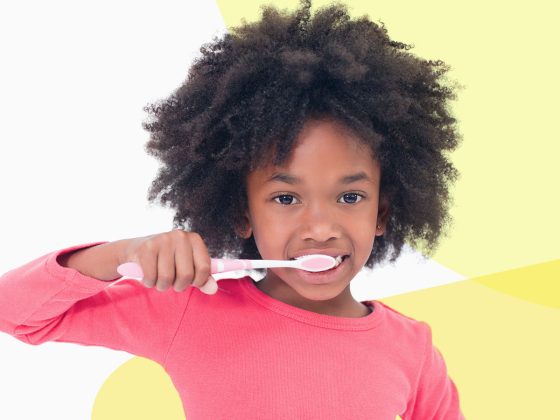
Learning in the Morning
Turn your child's morning routine into a time for learning!
Getting Dressed
- Help kids figure out the steps in getting dressed (“Which go on first—your socks or your shoes?”).
- Kids can also practice zipping, buttoning, and telling left from right.
- Investigate the concepts of “same” and “different” as kids get dressed. “Would my foot fit in your shoe? Why not?”; “What color are your socks? Can you see other clothes in the drawer which are that color, too?”
Breakfast Time
- Kids can learn the relationship between a whole and its parts as you cut a piece of fruit in half and then in quarters.
- Enjoy a five-senses breakfast. For instance, encourage kids to see, smell, touch, and taste their toast.
- As kids eat, help them learn where foods come from. “Who grows our food?”; “What drink comes from a cow? Where do apples grow?”; “What food do chickens lay?”
- Talk about the day’s plans: “What will we do today? What will happen, first, next?”; “What shoes would be good for playing in the park later?”
Going to School
- Help kids recognize and name letters and numbers by having them find some on the way to school.
- Use kids’ arrival at child-care or a friend’s or relative’s home to practice social skills, such as greeting others. Encourage kids to look around the room and talk about activities that would be fun to do with a friend.
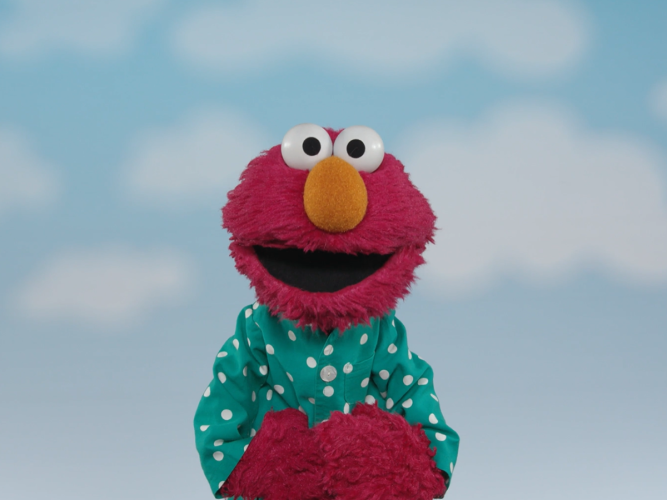
Listen, Feel, and See with Elmo
When children are in the hospital, this mindfulness game can help them soothe themselves.
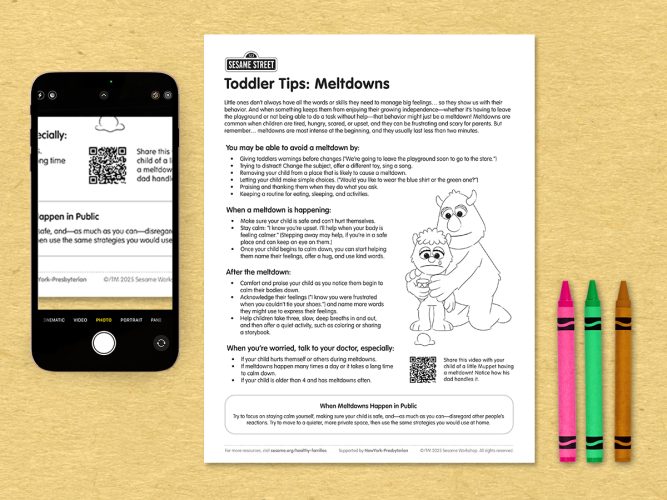
Toddler Tips: Meltdowns
Strategies for during and after a meltdown…and even some ways meltdowns might be avoided.
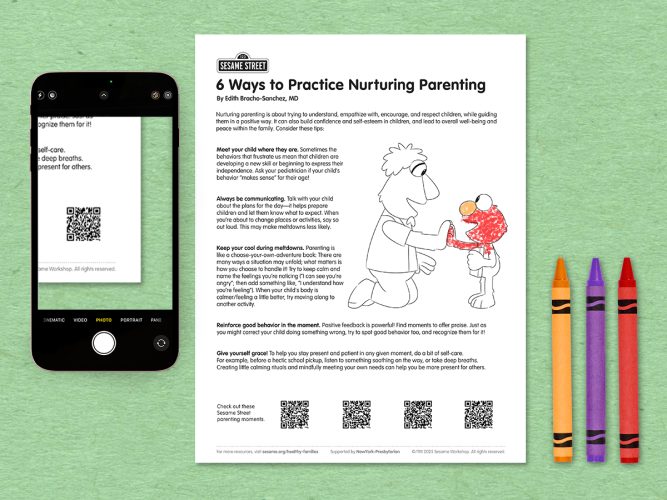
6 Ways to Practice Nurturing Parenting
Tips from a pediatrician on understanding, empathizing with, encouraging, and positively guiding children.
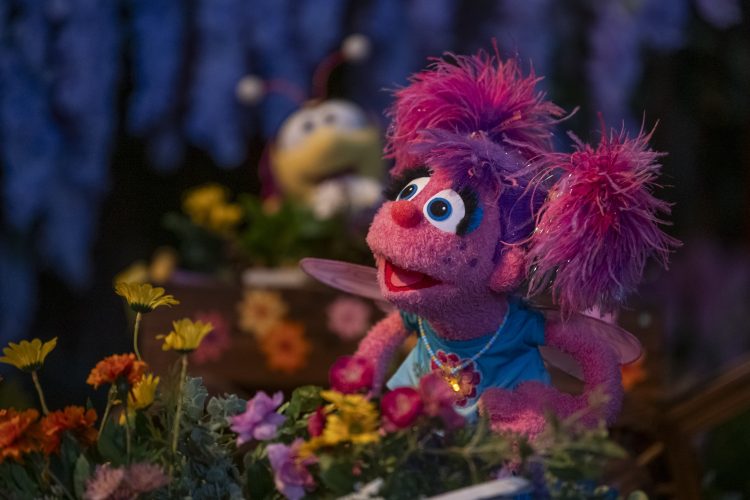
Watch and Play: Abby's Magical Beasties
Watch this episode and explore ways to extend the learning at home.
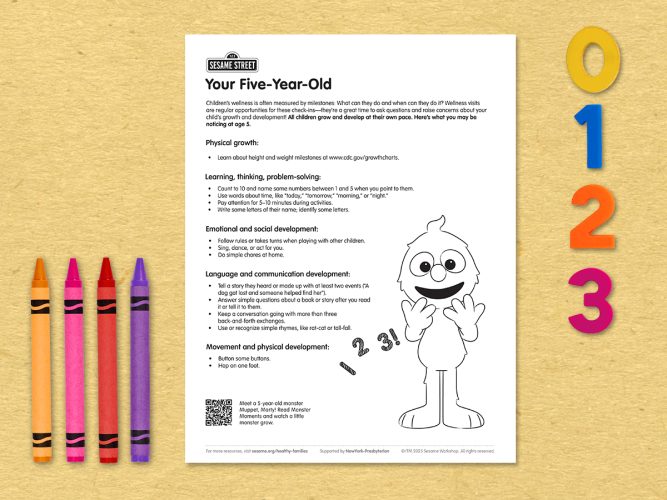
Milestones: Your Five-Year-Old
All children grow and develop at their own pace; use this chart to guide your expectations and observations so you can talk to your child’s pediatrician about questions or concerns.
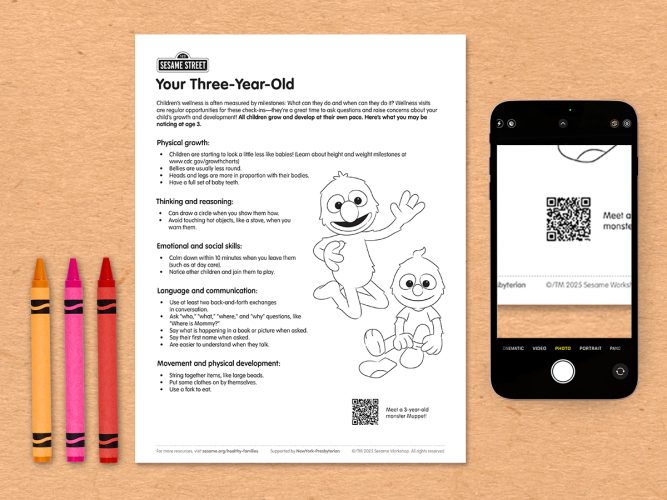
Milestones: Your Three-Year-Old
All children grow and develop at their own pace; use this chart to guide your expectations and observations so you can talk to your child’s pediatrician about questions or concerns.
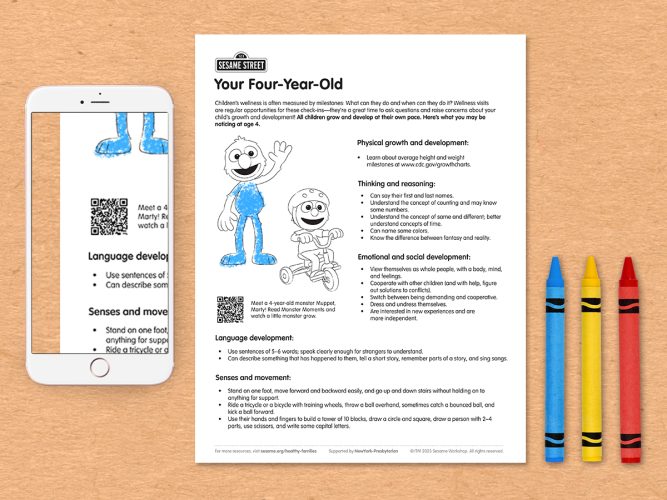
Milestones: Your Four-Year-Old
All children grow and develop at their own pace; use this chart to guide your expectations and observations so you can talk to your child’s pediatrician about questions or concerns.
